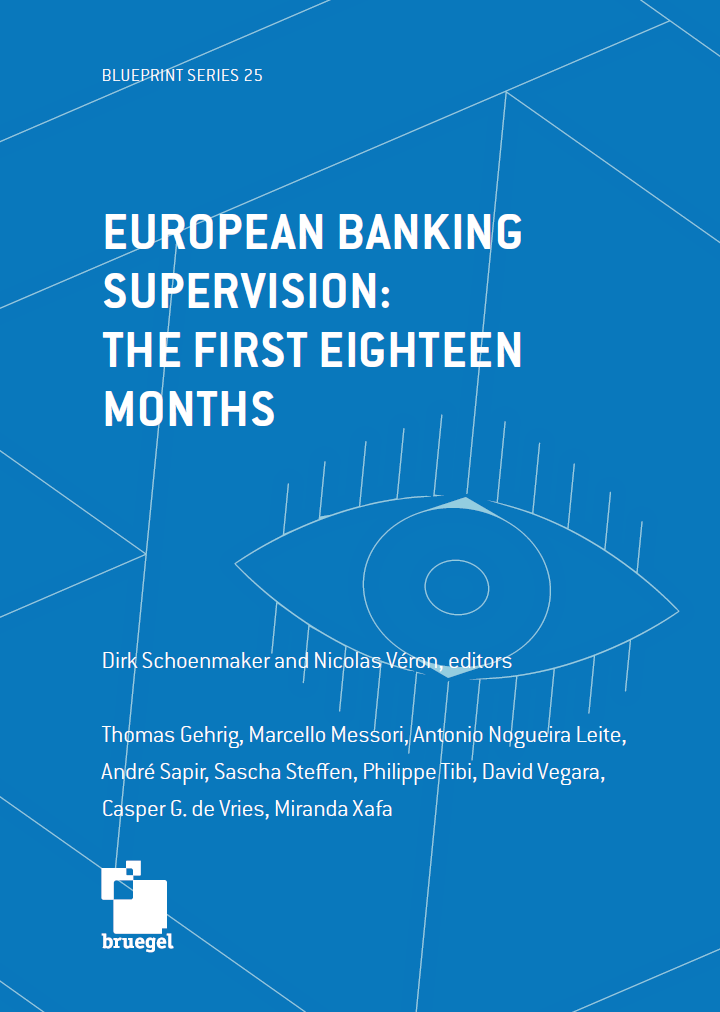Blueprint
European banking supervision: the first eighteen months
The Blueprint provides a review of the first 18 months of European banking supervision. It reviews the overall situation and the situation in a number of euro-area countries. It provides important insights into the start of a new policy regime that involves profound change for the European banking landscape
European banking supervision, also known as the Single Supervisory Mechanism, is the first and arguably the main component of European banking union. In late 2014, the European Central Bank became the supervisor for the region’s largest banking groups; the ECB also oversees the supervision by national authorities of smaller banks.
This Blueprint is the first in-depth study of how this ground-breaking reform is working in practice. It includes a euro-area overview and chapters on nine countries covering 95 percent of the area’s banking assets, illustrating the diversity of experiences, situations and perceptions in different member states.
Despite teething troubles and occasional misjudgements, this assessment finds that overall European banking supervision has been effective, demanding and broadly fair, at least for the banks under the ECB’s direct watch. Even so, achieving a truly single market in banking services will require more time, further supervisory initiatives and new Europe-wide regulatory and legislative steps.















